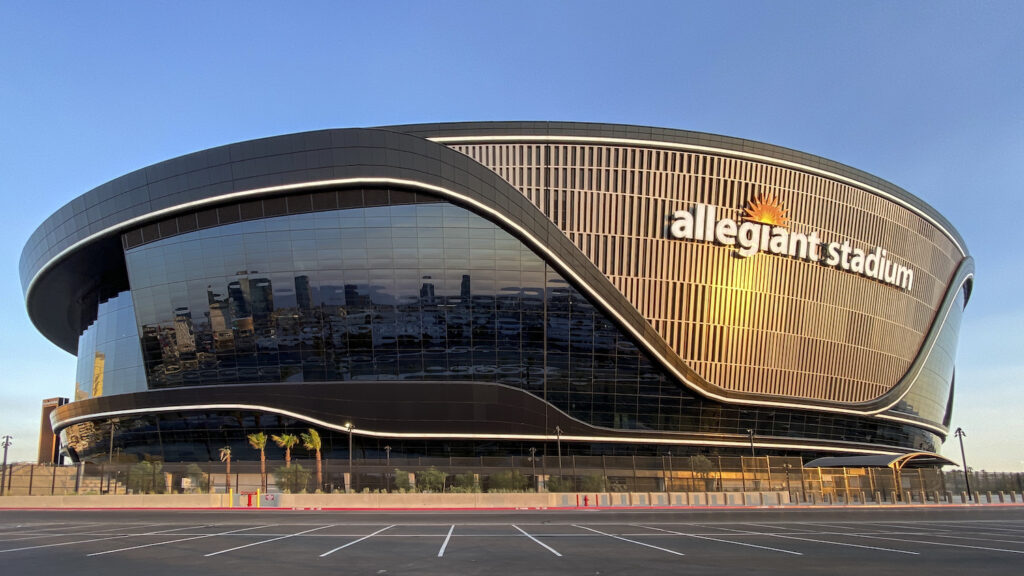Super Bowl: A Money Machine, But for Whom?
NC State professor Mike Edwards breaks down the socioeconomic impact of the annual championship game.

The Super Bowl has become one of the biggest sporting events in the world, with more than 100 million people watching the NFL’s annual championship game every year.
Given the Super Bowl’s popularity, it’s unsurprising that it generates a lot of money. Attendees pay thousands of dollars for tickets, while companies pay millions for 30-second commercial spots.
A reliable figure doesn’t exist for how much money the Super Bowl actually makes each year, though most estimates range from a minimum of $300 million to a maximum of $1.3 billion depending on the source.
“From a commercial perspective, there’s no other sporting event — nationally or globally — that’s like the Super Bowl,” said Mike Edwards, an associate professor of community sport at NC State.
Edwards, who studies the legacy of mega sporting events, added that the Super Bowl’s economic impact has been largely exaggerated, with the game likely only generating about $150 million in net direct income to residents.
In fact, much of the money generated by the Super Bowl is pocketed by the NFL, according to Edwards. While broadcast partners make millions of dollars in advertising, the NFL has several sources of revenue related to the Super Bowl.
The NFL not only receives 100% of the revenues from all ticket sales, but it also makes tens of millions of dollars in merchandise sales and even more from broadcasting deals with CBS, NBC and other networks.
ViacomCBS, for example, agreed to pay $2.1 billion a year for 11 years to the NFL to retain Sunday afternoon games and to air the Super Bowl for three seasons, including Super Bowl LVIII in Las Vegas.
“I don’t think there’s any question that the NFL is the Super Bowl’s biggest winner when it comes to who’s making the most money from the event,” Edwards said. “It’s a commercial success for them.”
Is Hosting the Super Bowl Worth It for Cities?
For host cities, the Super Bowl generates money for local businesses and governments through sales taxes, hospitality taxes and gas taxes. But there are related expenses such as additional security measures, emergency services and infrastructure like stadiums.
When NFL teams build new stadiums capable of hosting the Super Bowl, for example, local and state governments typically spend hundreds of millions of taxpayer dollars on the project.
The expenditure of taxpayer dollars on stadiums remains contentious, with some arguing that host cities don’t experience enough of a return-on-investment. One assessment found that the 2015 Super Bowl cost the city of Glendale, Arizona between $579,000 and $1.2 million.
“A lot of the money leaks out to national hotel chains and other businesses outside of the city, not those within the actual city itself,” Edwards said. “But that doesn’t mean that there aren’t some great benefits to hosting the Super Bowl.”

The Super Bowl can showcase a city’s attractions, culture and amenities to millions of people, for example. This can potentially lead more people to visit the city and ultimately increase tourism-related revenues.
It can also produce a sense of civic pride among residents. “Sport is unique in the way that it can bring people together,” Edwards said. “It creates this sense of a unified purpose within communities.”
However, Edwards added that it’s important to recognize that large sporting events such as the Super Bowl don’t necessarily result in positive socioeconomic outcomes for all communities.
NC State researchers Kyle Bunds and Jonathan Casper, both professors of parks, recreation and tourism management, have found that large sporting events can negatively impact the surrounding environment.
These events can also lead to socioeconomic issues like gentrification, with the construction of new stadiums often revitalizing urban areas but leading to higher property values that can displace current residents.
Also, while these events can boost the host city’s exposure to a national audience, it can displace tourists who would have otherwise visited — largely due to spectators reserving all the hotel rooms.
“Host cities and organizers need to consider how they can leverage these events for positive outcomes,” Edwards said. “But without an increase in public awareness and scrutiny, it’s going to be difficult to convince them that it’s necessary.”


